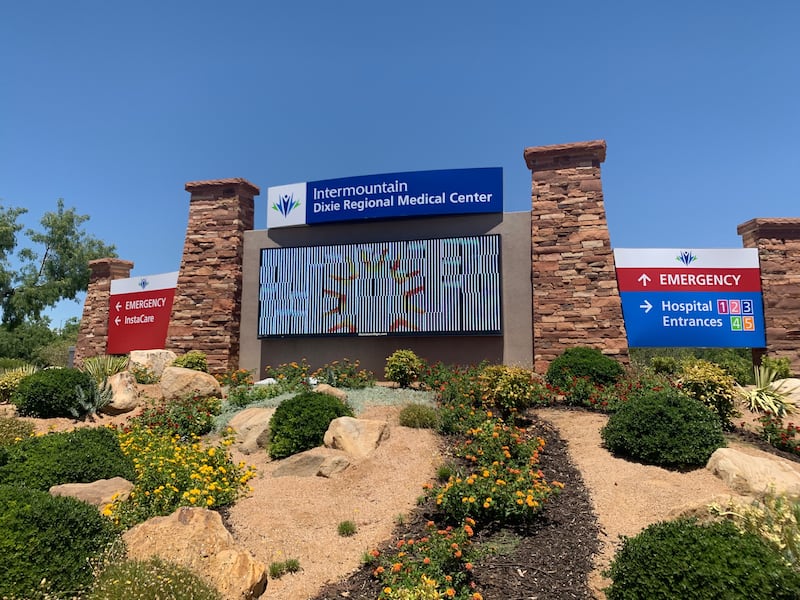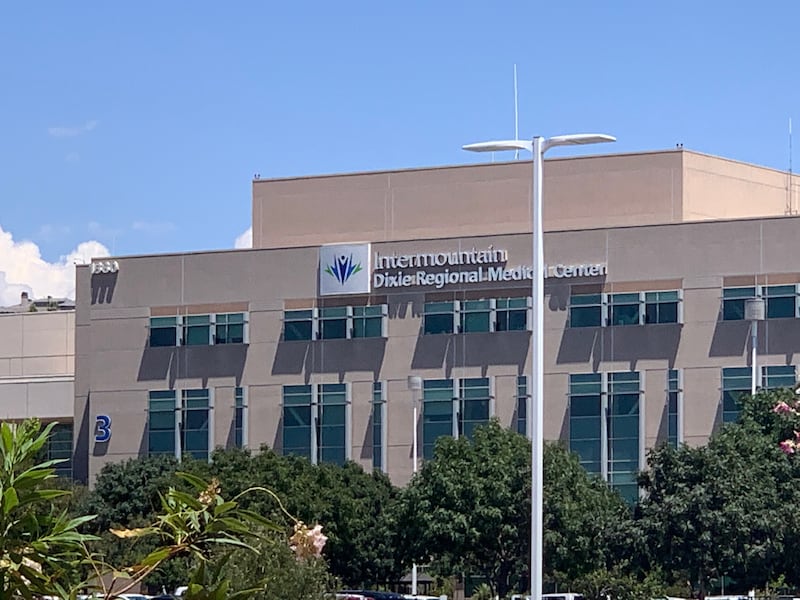ST. GEORGE — Dixie Regional Medical Center is changing its name.
The hospital that has had some version of “Dixie” in its name since 1952 will be known as Intermountain St. George Hospital as of Jan. 1, 2021, administrators announced Thursday afternoon.
The three officials who hosted an electronic press conference tiptoed around the question of whether or not the recent political climate led to the change, or at least the timing of the change, but they said several things that indicate racial politics at least played a role in the decision they said they’ve been considering for “months.”
“The original name was chosen 68 years ago to promote a feeling of community,” said Dixie Regional Medical Center Administrator Mitch Cloward. “Intermountain is committed to creating places of healing, which includes ensuring an environment where everyone feels safe and welcome. This new name positions us to do that well into the future.”
Cloward said the word “Dixie” has a “beautiful meaning for many who live here. ... However, the meaning is not clear for everyone. For some, it only requires explanation. For others, who are not from this area, it has offensive connotations.”
Dixie was a nickname for the southern United States, known as “Dixieland,” especially around the time of the Civil War. The nickname was popularized by the 1859 minstrel song “Dixie” written by Daniel Decatur Emmett.

In the past, the St. George area was dubbed “Utah’s Dixie” and the name is commonly part of names for businesses, streets and schools, including Dixie State University.
But the word “Dixie” has become increasingly problematic as the country reckons with racial inequalities, especially as issues relate to Black Americans. Just last month, the country music group known as the Dixie Chicks changed its name to “The Chicks,” acknowledging recent protests led them to reconsider how that word makes some of their fans feel.
The fact that “Dixie” is a word that carries racist connotations for some people has become problematic as the hospital has grown both in mission and in reputation.
Dr. Patrick Carroll, medical director, said the hospital staff began looking at “best practices for hospital naming about eight years ago.” They found it best if hospitals were named for the cities in which they were located for “clear, safe and effective communication. Eleven Intermountain Hospitals now follow this pattern.”
When asked directly if the name change resulted because of the current political climate, Cloward said it was something they’d considered for “a long, long time.”
“So there’s clearly turmoil across our country,” Cloward said. “But this change isn’t something we’ve considered lightly. We’ve considered the impact and meaning surrounding this change for a long, long time.”
He referenced the fact that more than 5 million people visit Washington County each year, and that many of their specialties have drawn national recognition, raising the profile of the hospital.
“We care for patients across the country and across the world,” Cloward said. “So we’re excited to bring together St. George and also the services that we provide as a hospital ... as we look ahead into the future.”
When asked if he thought it might alienate some members of the community who see the word as part of southern Utah’s heritage, he said “Dixie has tremendous meaning for people who live here. It is our priority that all patients feel welcome and safe when they’re thinking about care.”
Brian Chadaz, chairman of the board of trustees of Dixie Regional Medical Center, said they anticipate a wide range of responses from the community, but leaders hope residents will eventually understand that the change doesn’t change what they do or how they want to serve the community.
“We anticipate that this will be received in different ways,” Chadaz said. “I think some people will welcome it. Some people will be disappointed. ... But we want to stress our strategy for doing so, and that is to provide clarification, to provide simplification and to position us for the future.”
Carroll said they discussed the change with staff before announcing it. He oversees recruiting of new staff, and sometimes the name would become a topic of conversation.
“And occasionally, I speak with physicians that have questions about the name,” Carroll said when asked if it has been problematic for anyone being recruited to work at the hospital. “And that’s a very easy conversation to talk to them about that and the heritage and the meaning of Dixie that has served the the community over the many years.”
He said the new name “positions us very well” to move into the future.


